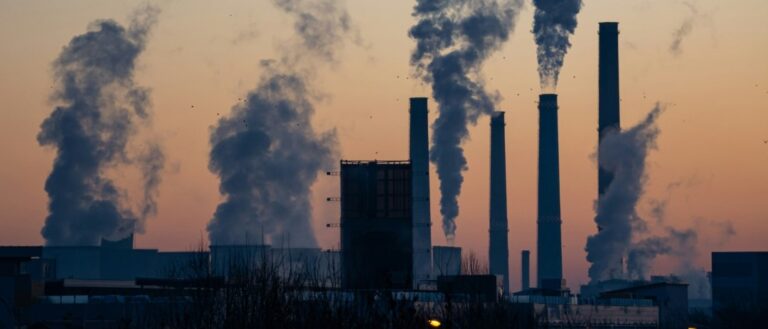This post was originally published on Legal Planet. Reprinted with permission.
If the Trump EPA successfully repeals the endangerment findings for vehicles and stationary sources, states will be the only resort for climate action. A key question is how the repeals would impact state power relating to carbon emissions. The bottom line answers are: (1) the impact on state power to regulate tailpipe emissions seems unclear but could be positive; (2) there would be no effect on state power to regulate stationary sources like power plants; (3) plaintiffs suing oil companies would probably benefit. The detailed analysis is below.
What happens to federal preemption of state tailpipe standards for greenhouse gases? Would California still need an EPA waiver?
Prior to the repeal of the endangerment finding, the situation was clear: EPA regulated tailpipe emissions of greenhouse gases from vehicles, while states couldn’t unless EPA gave California a waiver. The question now is: Since repeal of the endangerment finding means that EPA can’t regulate these emissions, does California still need a waiver?
The answer isn’t clear.
Here’s the governing provision in the Clean Air Act:
No State or any political subdivision thereof shall adopt or attempt to enforce any standard relating to the control of emissions from new motor vehicles or new motor vehicle engines subject to this part.
The Trump administration takes the position that “emissions” includes emissions of substances that they say EPA itself lacks the power to regulate. The counterargument is basically that Congress meant the preemption provision to cover only things that EPA would regulate. Under that interpretation, the preemption provision wouldn’t apply at all to greenhouse gases, so California would no longer need the waiver.
Today, other states can piggyback on a California waiver by adopting California’s standards. But that wasn’t true in 1970, when the preemption provision was passed. I don’t think that Congress ever imagined that there would be harmful emissions that EPA lacked the power to regulate, but that’s exactly the situation the Trump administration is attempting to create by repeal of the endangerment finding. Thus, we’re asking what Congress would have intended in 1970 in a situation where EPA couldn’t regulate, California could (with a waiver), and no one at all could regulate in the other 49 states.
You can see the preemption provision as part of a grand bargain: States gave up their right to regulate vehicle emissions (except for California) while the industry agreed to EPA regulation. That bargain breaks down if there are substances that EPA can’t regulate because states would be getting nothing back in return for giving up their own regulatory powers.
We’re trying to apply text to a situation that the drafters probably never thought possible. I can think of textual arguments both ways, but I’m not sure what a court would do.
What happens to state regulations of greenhouse gases from everything else (power plants, factories, refineries, etc.)?
I might be missing something, but I can’t see any impact on state power to regulate carbon emissions from these stationary sources. Unlike the Clean Air Act provisions governing mobile sources, there’s no preemption provisions for state regulation of stationary sources. State regulations of greenhouse gases can’t conflict with federal regulations if there are no federal regulations. And the Clean Air Act clearly wasn’t meant to oust states from emission regulation because there’s a savings clause that covers state regulations of stationary sources. The conclusion is that the legality of state regulations, such as cap-and-trade schemes, would be unaffected by repealing the endangerment findings.
What happens to lawsuits against oil companies or utilities based on their carbon emissions?
These lawsuits should be helped. The Supreme Court previously held that climate lawsuits against utilities could not be brought under federal law because Congress had taken over the business of regulating these emissions. Repealing the endangerment finding would eliminate that argument, so the lawsuits would come back to life. They might then be squashed by the Supreme Court on other grounds, but in any event, the repeal wouldn’t hurt them.
The oil companies are currently making a similar argument to block lawsuits against them for climate damages. Without the endangerment finding, that argument would also evaporate. In short, repealing the endangerment finding would probably benefit the plaintiffs suing fossil fuel emitters or polluters.
Overall, it seems to me that repeal of the endangerment finding is likely to leave the states’ powers the same as they were before, or perhaps a little stronger.
Showing 2,943 results

Daniel Farber | February 24, 2026
If the Trump EPA successfully repeals the endangerment findings for vehicles and stationary sources, states will be the only resort for climate action. A key question is how the repeals would impact state power relating to carbon emissions. The bottom line answers are: (1) the impact on state power to regulate tailpipe emissions seems unclear but could be positive; (2) there would be no effect on state power to regulate stationary sources like power plants; (3) plaintiffs suing oil companies would probably benefit.

Federico Holm | February 19, 2026
How has the local renewable energy ordinance landscape changed since mid-2023, the last time we took stock of this fast-moving policy issue? It turns out a lot has happened since then. In our latest analysis, we address this question by summarizing the major trends across the Lower 48, including a comprehensive update of our local ordinance database. This update provides advocates, journalists, researchers, and county board officials with valuable information, in an open and accessible way. With it, we seek to empower stakeholders with critical data in our efforts to ensure that the clean energy transition not only happens, but that it does so consistent with just transition and energy democracy principles.

Daniel Farber | February 18, 2026
Last week, the U.S. Environmental Protection Agency (EPA) overturned its 2009 finding that greenhouse gas emissions from vehicles endanger human health and welfare. EPA argued that it lacked the legal power to regulate these greenhouse gas emissions. As I have written elsewhere, EPA’s arguments are difficult to square with a landmark decision by the U.S. Supreme Court, Massachusetts v. EPA.

Sophie Loeb | February 17, 2026
Data centers are increasingly making headlines for the serious problems they create for the communities where they are proposed and built, as well as for the resistance from people who live there, who refuse to accept the rising energy bills, noise and air pollution, and strains on water infrastructure that inevitably accompany these new neighbors. On Tuesday, February 10, I moderated a webinar, “From Community to Congress: Advocating on AI Data Centers,” that broke down the (de)regulatory landscape of data centers.

Daniel Farber | February 13, 2026
The other shoe has dropped with the announcement of the final rule repealing the U.S. Environmental Protection Agency’s (EPA) 2009 finding that greenhouse gases endanger human health and welfare. The Trump administration has the nasty habit of announcing new regulations before posting them. That means that for the moment, we are limited to the EPA press release.

James Goodwin | February 12, 2026
Over the course of more than a century, serious statespeople came together to build the modern administrative state out of a shared commitment to redeeming their constitutional duty to form a more perfect union. The February 12 action to rescind the 2009 EPA endangerment finding represents the single greatest defiance of that project yet by the Trump administration.

James Goodwin | February 2, 2026
To the extent that people think about the U.S. Environmental Protection Agency (EPA) at all, they likely think of an institution that works to safeguard our health and well-being, and that of our environment. So, The New York Times made quite a splash recently when it reported that the agency had adopted a new policy under which it would stop considering the health benefits of two of the most harmful and pervasive air pollutants: fine particulate matter and ozone.

Brian Gumm, Bryan Dunning, Catalina Gonzalez, Federico Holm, James Goodwin, Sophie Loeb, Spencer Green | January 29, 2026
One of the core beliefs of the Center for Progressive Reform is that our collective problems require collective solutions. One of the reasons we embrace the administrative state is that it provides a uniquely powerful institutional forum within our constitutional system of government in which to put that belief into practice — and was indeed created for doing so. That vision has not always lived up to its full potential, of course, and building a government that lives up to that vision is a focal point of the Center’s work. What is currently happening with the violent occupation of Minneapolis and other cities across the United States by U.S. Immigration and Customs Enforcement (ICE), Customs and Border Protection (CBP), and other militarized civilian administrative agencies represents a categorically different problem, however.

Sophie Loeb | January 28, 2026
Two policy briefs published by the Center in recent months explain that even before the second Trump administration and the 119th Congress launched their broadsides against the Inflation Reduction Act (IRA), the scale and pacing of decarbonization was already lagging at investor-owned utilities. Most customers in the U.S. are served by investor-owned utilities. Due to their complicated mix of historical industry capture and political power, information asymmetries in the regulatory context, the profit motive of energy production and distribution, and tax policy, IOUs are often disincentivized from advancing an equitable clean energy transition. Our policy briefs explore several alternatives to the IOU model as part of a just transition to clean energy.